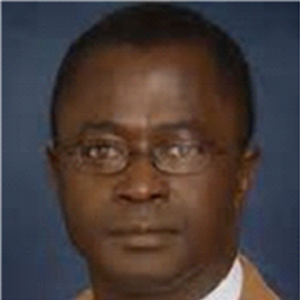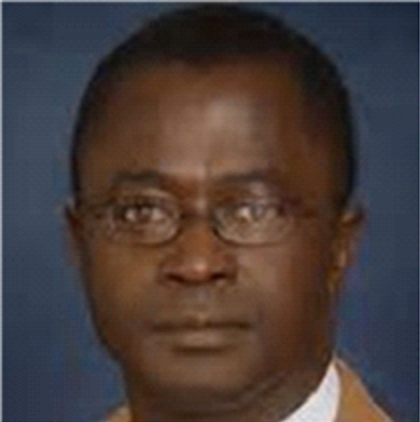
The flaws in the handling of the TRCC, as outlined in the series of writings of a Mr Omar Janneh, have been given plenty of exposure in the local printed and on-line press recently.
Just why his opinion merits so much exposure is a mystery and a topic for analysis in itself. In Mr. Janneh’s opinion, the TRRC Act itself is flawed, the President should have no role in the TRRC so he is conflicted as is everyone else down the line, the Executive Secretary is conflicted so his selections for staff are conflicted, a crucial one being the Director of Research and Investigations.
The TRRC has no lawyers nor judges, at least one of the 11 Commissioners recently announced should be disqualified (so far), the time period given for submitting objections to the Commission members is too short, the timing of the TRRC is premature, Gambians do not have the capacity conduct a successful TRRC and on and on. That is plenty of issues!
Fortunately, Mr Janneh, the self-appointed spokesperson for ‘fair minded individuals, regional partners, AU, UN and donors’ has not been given a role in the TRRC – it would be stalled by his hand wringing.
The only complaint having any substance Mr. Janneh has been able to muster is that the appointed Director of Research and
Investigations Unit, Mr. Alhagie Barrow, is a convicted felon (in the USA) and a participant in the ‘unconstitutional’ attempted
overthrow of the Govt of T.G. (e.g. the Jammeh regime).
He is not just ‘conflicted’ but also ineligible for any role in the TRRC. But I don’t see Mr Barrow listed as one of the 11 Commissioners, so I am confused about why the requirements for Commissioners
listed in the TRRC Act should also apply to him.
Mr. Janneh says overthrowing a regime is ‘unconstitutional’. A constitution is a document created by people, and corrupted by people. It is not like some sacred golden idol dropped from the heavens that citizens are compelled to kneel before in unquestioning devotion.
Yahya Jammeh didn’t think that way
either. The 30th Dec ‘terrorist coup attackers’ (to use Jammeh’s term) were trying to rid the country of a dictator who scoffed at
the Gambian Constitution. The reality is Gambia’s Constitution was pushed aside and replaced by Jammeh’s own version of it.
Mr. Barrow and his accomplices in ‘unconstitutionality’ were not out to rid Gambia of it’s Constitution, but rather restore it. Look, if someone is raping your Mother, will you just stand there agonizing over the legalities of how to get your Mother back on
her feet? Will you wait for an election to force the rapist to withdraw? Apparently not Mr. Barrow and his comrades.
I consider the 30th Dec ‘terrorist coup attackers’ patriots and heroes. From what I’ve read about Mr. Barrow’s background, he is an ideal selection for the role.
Mr. Janneh goes on to fault the selection of the 11 Commissioners because it does not include any judicial types, learned academic
types nor any ‘high profile’ expert types like himself, perhaps.
Well, omitting these types is intentional. If I understand Executive Secretary Jallow’s strategy correctly, this TRRC intends to do things differently than other Commissions that didn’t do so well reaching their ultimate objective – nuturing the ‘never again’ mindset in the citizenry. Mr. Jallow has explained their strategy is to be more ‘inclusive’, meaning the
general public is to have a greater role in this TRRC.
Let the victims tell their stories in their own way, free from the mind numbing legal rules and procedures – save all that for later in
court if needed. Let Gambian citizens hear the stories.
Hopefully the Truth will encourage many Gambians to shake the unfortunate habit of letting a dictator do their thinking for them.
I must add that the handling of the creation of the TRRC, publicizing its mission, and the process of recruiting then selecting it’s 11 Commissioners and support staff, in my opinion,has been a well thought out, thorough, professional job well done
so far.
During my eleven years residing in T.G. I have never witnessed any program that has been as open, public and encouraging of public participation as the TRRC.
The TRRC’s objectives and recruitment drive have been widely advertised in the local printed press since May, 2018 and TRRC missionaries have been dispatched to the provinces to educate citizens. They’ve realized that the internet, with its high cost, limited coverage and snail like speed – is not a good tool for reaching the average Gambian citizen.
Let the TRRC move forward and do its
good work. Over and out.
Amet Ngallan/Fajara
(Elementary School diploma, HS Diploma, BS University of Illinois, MBA University of Chicago, no PhD yet but still called ‘Professor’)






I thank Mr. Ngallan for his perspectives on Dr Janneh’s latest pieces regarding the TRRC.
Having said that, I am totally convinced that he and Dr Janneh are viewing the issue at hand from two different perspectives: The latter has been viewing the issue from a legal perspective whilst Mr Ngallan has utilized moral arguments to buttress his point of view. The elephant in the room accordingly boils down to “noise”.
This humble author therefore feels constrained to defend Dr Janneh. In the first place, he is right that the conflict of interest issue must be taken seriously lest the whole project ends up in failure. Gambians at home may be of the opinion that all the recent appointments in the TRRC have been above board. However, there are universal legal rules and procedures that have to be upheld before the requirements of the law and the international community can be satisfied that TRRC’s proceedings are free, fair, transparent and that those appointed to manage its affairs have no “conflict of interest” issues with the law. As he has time and again reminded readers, by failing to take these issues seriously, the process could end up costing the tax-payer many, many millions of Dalasis in litigation expenses – money that could easily be saved in the first place if things had been done in accordance with the law from the outset. Secondly, he is right that when a leader has conflict of interest issues all appointments/decisions made by that person become null and void under the law when it in fact is proven before a court of law. What this means in the short term is that the process has to commence all over again … and I am sure you can see the financial implications of that in a country that is officially bankrupt. What’s more, the global legal community shall not accord the commission’s decisions the respect that it deserves … and these are the very peoples who have committed to foot a large portion of the ensuing bills. Do we expect them to do that when it by now has come to their notice that not everything is above board in the appointment and selection process of officials and commissioners?
As to coups, these are unconstitutional in every country in the world. Thus the Hobbesian political theory you espoused in defense of your heroe’s right to take up arms against a sovereign who has broken his contact with the nation is politically and morally powerful. However, the law does not buy that: I.e. unless one succeeds in the coup attempt, one has committed a treasonable act which is justiceable.
Lastly, allow me to take exception to your personal attacks and insinuations against Dr Janneh: He has the right to his opinions just like you and any other person for that matter – no matter how disagreeable these may be to others.